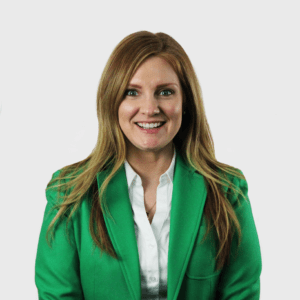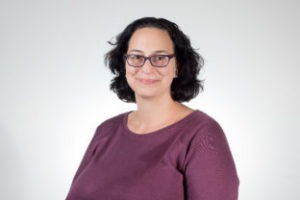Welcome to the Internet Boot Camp
The idea of seniors using computers is not new, and many have had exposure to this technology before entering a nursing home. But even if they have
never used a computer nor have any idea of what the Internet is, with guidance, they can enter the world of cyberspace. With a computer connected to the Internet and someone to assist with accessing e-mail and the Internet in general, new worlds of communication and information previously unknown to the resident are opened up.
This was an idea presented to the administration of a local nursing home in Lowell, Massachusetts, about four years ago by one of the authors (Dr. Patrick Scollin). Having become involved with D’Youville Senior Care, a not-for-profit long-term care facility sponsored by the Sisters of Charity of Ottawa, while his mother was a resident, Scollin began to discuss the possibility of having residents become involved in an “Internet Boot Camp.” As a professor in the department of Community Health and Sustainability, School of Health and Environment, University of Massachusetts, Lowell, Scollin found that teaching health profession students how to make the best use of computer technology made it seem only appropriate that he could also help the residents become members of cyberspace.
Through the generosity of a colleague, a computer was procured and donated to D’Youville, which already had Internet access within the facility. This one computer with an 18-inch monitor became the start of Scollin’s Internet Boot Camp.
A dozen residents attended the first session where the concept was discussed; they were shown what the Internet was all about and how e-mail worked. This initial group became the first cyber campers at D’Youville. Yahoo e-mail accounts were started for each resident, and the family of each was given the resident’s address and encouraged to pass it on to other family members and friends. Members of the activities department sent each resident an initial e-mail to get things started, and a connection was made with the local girls club to become the residents’ e-mail pen pals.
One afternoon a week Scollin would host the camp and help the residents with their e-mail. With only one computer, residents had to wait their turn, sometimes for an hour or more. They did so willingly. Scollin says that some could do their own typing, and for others he would be their scribe. A few of the original group eventually drifted away, but for the most part residents enjoyed the process of communicating with family and the pen pals through e-mail, and they attended the Wednesday sessions regularly. For some residents, this was their only means of communicating with grandchildren away at college or with children who live in other states where visits were not easy.
Coauthor Lisa Couture, foundation director at D’Youville, explains that residents enjoy this new way to communicate in part because it does not cost any money to keep in touch with family and friends—they save on stamps and the cost of placing long-distance telephone calls.
About a year into the program, with eight steady participants, Mary George, the director of D’Youville’s Adult Day Health, asked about the possibility of having some of its clients join the camp, which resulted in four additional participants. The connection with family through e-mail became very apparent to one of the Adult Day Health participants. Although having lived in the United States for many years, most of her family members still live in Holland. She says that the ability to communicate with her sister and other family members through e-mail in Dutch and receive digital photos has added a new dimension to “staying in touch.”
Another resident with a great interest in aviation is helped to surf the Net for information on planes, while another looks for crochet patterns that can be printed out.
As the program continued, it became apparent that the single computer was not adequate. Only one resident could be served at a time, and there was little opportunity for them to explore other aspects of the computer. The residents were asking for more computers, as well as reading and audiovisual materials.
D’Youville has been fortunate in having very forward-thinking administrators at its helm. As a result of this, the D’Youville Foundation headed by Couture was founded in 2002, with the mission of building an endowment and raising money for projects that would be outside the facility’s normal operation. Couture notes that D’Youville Foundation’s goal is to uphold the legacy of St. Marguerite D’Youville and the mission of D’Youville Senior Care of providing compassionate care to frail adults and the elderly. The Foundation seeks projects that will provide residents with resources for them to continue to learn and stay connected to the community, and enjoy the things they used to take pleasure in before coming to the nursing home.
Two previous projects of the foundation included the construction of a balcony off the second-floor Special Care Alzheimer’s units, so that residents could enjoy the outdoors in a secure and pleasing space without having to wait for a staff member or family member to be available to bring them outside, and the purchase of a 14-passenger, wheelchair-accessible bus to bring the residents back into the community.
The idea of the learning center came about from collaboration between the authors. It is their long-term vision to build a “senior school” for the residents and clients of D’Youville, where they can sign up for classes and receive a certificate of completion when they finish. The authors recognized the need to convert the underutilized old library space into a place that was more inviting and conducive for residents to learn and stay connected to family, friends, and the world at large. They also realized the need for more computers to support the Internet Boot Camp, which had become quite popular. They decided that a learning center was necessary to accommodate more computers, as well as the need for more space for residents to continue to learn or simply relax with their favorite book. The learning center is an initial step in building D’Youville’s future senior school.
Funds were raised by the foundation in 2005, and the remodeling of the library (where the single computer was housed) commenced. The new learning center today consists of four computers with flat-screen monitors, with one computer having a Web cam attached. A photo-quality printer is networked to the computers, and all computers have access the Internet. A 52-inch plasma high-definition TV is wall mounted and controlled by wireless remote, which allows residents access to television, CD, DVD, VHS, and radio, all with the simple push of a button. Large-print books and books on tape, as well as portable DVD players, have also been added to the center, along with magazines and newspapers for the residents to enjoy. Finally, a half-time position was created to staff the center
.
All this has resulted in offering residents access to the center from 9:00 a.m. to 5:00 p.m. Monday through Friday, with assistance for residents using the computers, as well as increased availability of poetry and book reading, movies, and discussion groups. Many social groups and new friendships have formed as a result of the new learning center, including socialization at the book club, poetry club, chitchat club, Red Hat Society, and many other activities.
Residents’ comments indicate that this has been a very worthwhile expenditure and has opened new avenues for keeping connected:
Resident MW: “I love going to our new learning center to learn more about the world of computers. I enjoy getting e-mails from friends and families, as well as photos of my loved ones. A recent discovery I made on the computer is reading about the news of the world. Our learning center also holds movie groups for those of us who are avid movie watchers.”
Resident JR: “Since our new learning center has started, I have more choices of how to spend my time. I can play computer games, I can Google events or things I want to learn about, and check my e-mail. We hold a book reading group where we listen to a story being read, which helps those of us unable to hold a book or see well enough. Our new learning center also has a nice social and welcoming feel.”
Resident CW: “Reading is a pastime I enjoy, but finding a nice comfortable and non-distracting place to read is a challenge sometimes. Since our new learning center has opened, I now have a place to go and read the newspaper and magazines, look through books from the shelves, and do word puzzles. While visiting the learning center I can talk with our learning center aide, who is there to help us utilize the center, share a laugh, or lend a listening ear.”
Resident CB: “Our new learning center holds a weekly Book Club. I enjoy going each week to read the book with a group of my friends and discuss the story. Watching the weekly movies on our flat-screen TV is also nice. I stop by to read the daily newspapers that are always on hand for anyone to peruse or to just stop in and look at books on the shelves.”
From this sampling of comments it would seem that the learning center has opened new avenues of enjoyment for many of the residents. Although it may not be possible for every facility to develop a learning center, as D’Youville Senior Care has done, just having a single computer connected to the Internet and a staff member or volunteer with some computer experience can be the beginning of a whole new world for residents, a vital means of staying connected with the world outside the walls of the long-term care facility.
To send your comments to the authors and editors, e-mail scollin0307@nursinghomesmagazine.com.
References
- Agnew T. User friendly at any age. Nursing Older People 2006; 18 (8): 8-9.
- Bradley N, Poppen W. Assistive technology, computers and Internet may decrease sense of isolation for homebound elderly and disabled persons. Technology and Disability 2003; 15 (1): 19-25.
- Brunk B. The new mega-users. Seniors are flocking to the Internet faster than other age groups. Contemporary Long-Term Care 2003; 26 (3): 40-1.
- Brunk B. Greater expectations. Internet access is no longer a luxury for seniors—it’s an expectation they want you to fulfill. Contemporary Long-Term Care 2003; 26 (4): 39.
- Gilbert CM. Helping seniors capture the power of the Internet. Medical Reference Services Quarterly 2001; 20 (2): 71-7.
- Kiel JM. The digital divide: Internet and e-mail use by the elderly. Medical Informatics and the Internet in Medicine 2005; 30 (1): 19-23.
- Lorence DP, Park H. New technology and old habits: The role of age as a technology chasm. Technology and Health Care 2006; 14 (2): 91-6.
- Marquié JC, Jourdan-Boddaert L, Huet N. Do older adults underestimate their actual computer knowledge? Behaviour and Information Technology 2002; 21 (4): 273-80.
- O’Leary S, Mann C, Perkash I. Access to computers for older adults: Problems and solutions. American Journal of Occupational Therapy 1991; 45 (7): 636-42.
- Sherer M. The impact of using personal computers on the lives of nursing home residents. Physical and Occupational Therapy in Geriatrics 1996; 14 (2): 13-31.
- Whittall D, Grace D. Bridging the technology gap: Enhancing communication between residents in a nursing home with local community school children using the Internet. Geriaction 2002; 20 (4): 15-17.
I Advance Senior Care is the industry-leading source for practical, in-depth, business-building, and resident care information for owners, executives, administrators, and directors of nursing at assisted living communities, skilled nursing facilities, post-acute facilities, and continuing care retirement communities. The I Advance Senior Care editorial team and industry experts provide market analysis, strategic direction, policy commentary, clinical best-practices, business management, and technology breakthroughs.
I Advance Senior Care is part of the Institute for the Advancement of Senior Care and published by Plain-English Health Care.
Related Articles
Topics: Articles , Technology & IT











